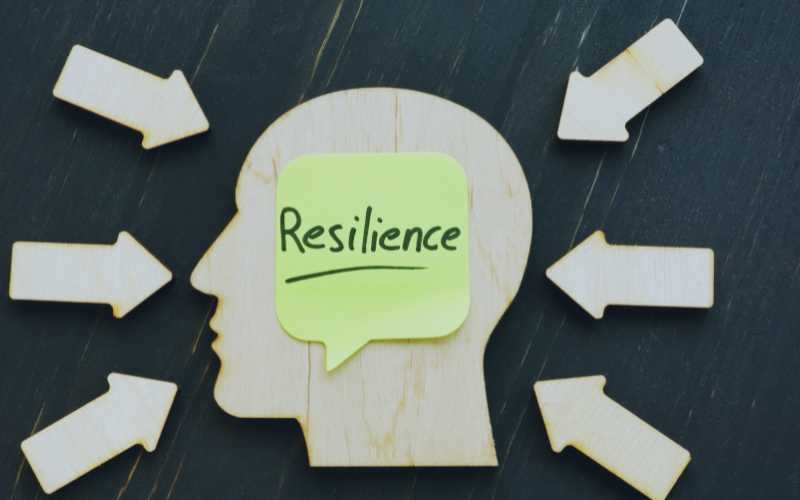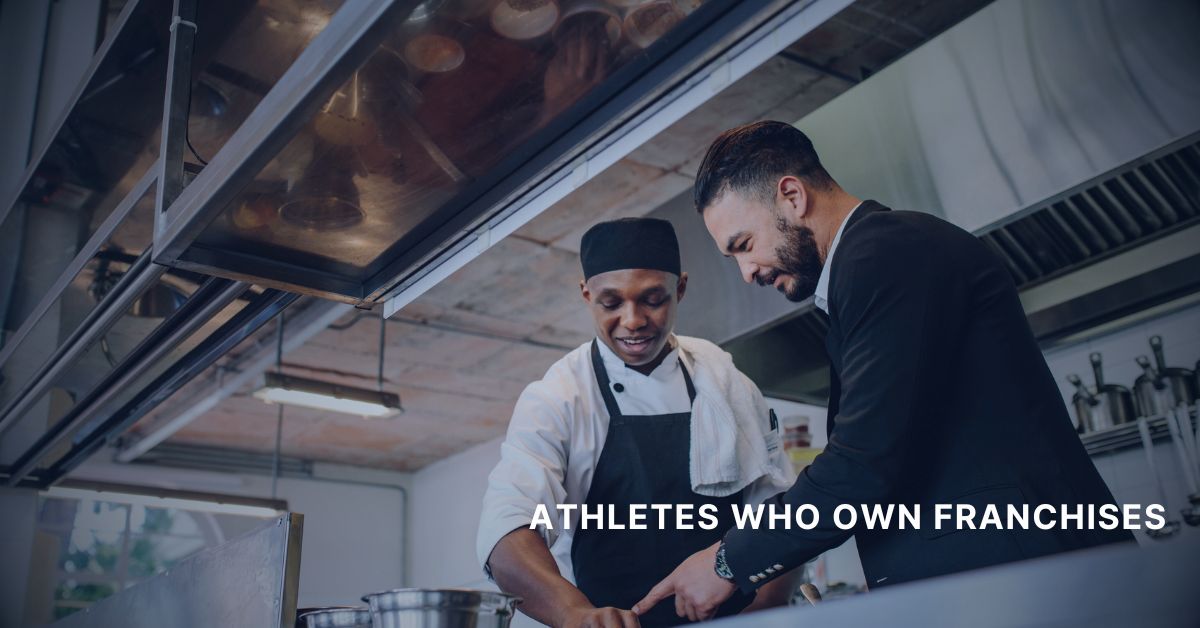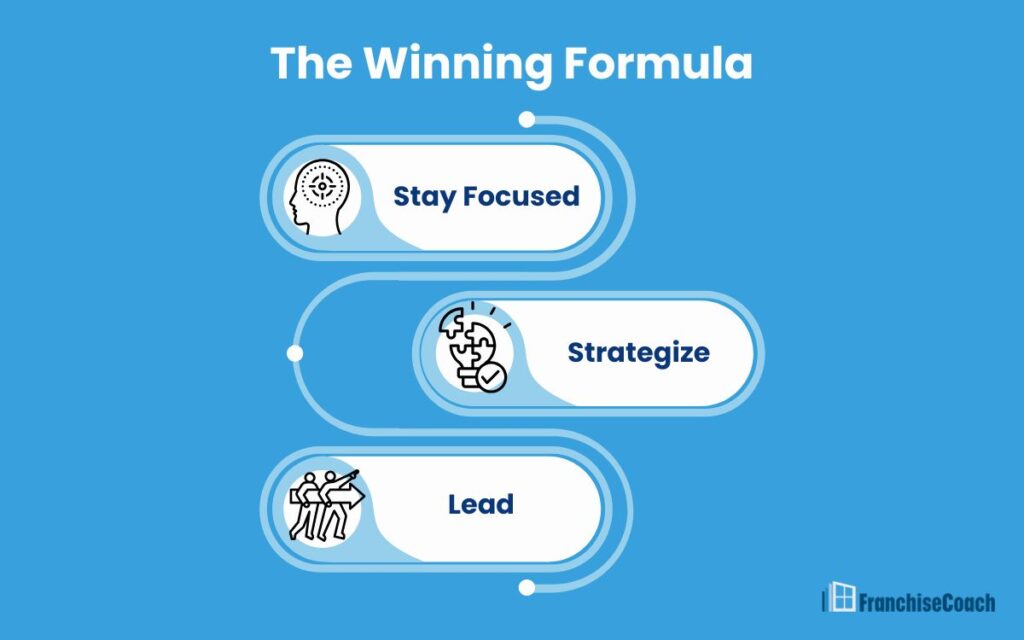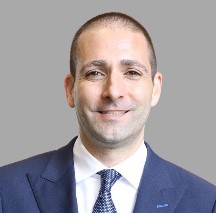When you think about athletes who own franchises, especially those involved with professional sports teams, you probably picture powerhouse names, major endorsement deals, and Super Bowl MVPs. But there’s another championship happening off the field: franchise ownership.
After the game clock winds down, so many professional athletes are stepping into the franchise industry with new franchise models — and spoiler alert: they’re absolutely crushing it. From Kansas City to Los Angeles, from Papa John’s to Stretch Zone, athletes are proving that success isn’t limited to the field, the court, or the track — it’s scalable across multiple franchises, too.
Their secret weapon? A skillset honed in the competitive trenches of professional sports: discipline, leadership, resilience, strategic vision, and a relentless drive to win — all vital traits for any franchise owner navigating today’s business landscape.
Let’s call a timeout and dive into why professional athletes are making franchising their next MVP move.
The Winning Formula: Why Athletes Excel in Franchising
Franchising isn’t about reinventing the wheel — it’s about running a smart business model that already works. And that’s exactly the kind of structure athletes thrive in. With proven systems, clear goals, and support along the way, the franchise model feels a lot like a playbook… just with fewer Gatorade breaks.
Here’s what makes athletes naturals at the franchise game:
- Stay Focused: Athletes are wired to lock in on a goal and block out the noise. That same focus helps them follow proven systems, manage day-to-day operations, and keep their eyes on long-term growth — even when the pressure’s on.
- Strategize: You don’t win championships by winging it. Athletes know how to break down film, read the situation, and adapt fast — and in franchising, that means analyzing markets, adjusting to challenges, and always staying a few steps ahead.
- Lead: On the field or in the store, leadership matters. Athletes bring that locker room energy into their franchise teams — motivating people, building trust, and creating cultures where everyone plays to win.
At the end of the day, franchising gives athletes a chance to keep chasing greatness — just on a different kind of scoreboard. When they bring their discipline, drive, and team-first mindset into business? That’s when the real magic happens.
Here’s why the transition from playing football or hitting home runs to owning a Five Guys or Jimmy John’s just makes sense.
1. Discipline and Work Ethic: From Practice Fields to Profit Margins

You don’t become a five-time NBA champion like Magic Johnson or a Super Bowl MVP without serious discipline. As a professional athlete, you learn the grind — early mornings, intense practice, and an unwavering focus on winning.
Take Shaquille O’Neal. After dominating the NBA, he dove into franchising with Papa John’s, Five Guys, and Krispy Kreme, treating each brand like a championship team. He’s smart enough to partner with the right business pros, helping scale and fine-tune operations.
For athletes like Magic Johnson, it’s about more than business — it’s about making an impact. He’s brought franchise opportunities to underserved urban communities, showing that success can also spark positive change.
Lesson:
In franchising, just like in sports, showing up every day and sticking to the fundamentals is what builds lasting success.
2. Teamwork and Leadership: The Locker Room, Now a Boardroom

Franchise operations thrive on team dynamics. Athletes are used to coordinating with coaches, trainers, and teammates — a rhythm that transitions seamlessly into managing staff, partners, and multi-unit operations.
Look at Drew Brees, former NFL quarterback turned franchise mogul. Brees didn’t just dive in solo — he partnered with Franworth, a franchise development firm, to help grow his empire across brands like Jimmy John’s and Stretch Zone. This alliance with experienced operators was a strategic power move, turning him from athlete to executive.
Pro Tip:
Even MVPs need a good team behind them. Whether it’s game day or payday, the right business partner makes all the difference.
3. Resilience and Mental Toughness: From ACL Tears to P&L Reports

Business isn’t always a highlight reel. Markets shift. Staff churns. Units underperform. But for pro athletes, adversity is a familiar opponent.
Marques Colston, a Super Bowl champion and wide receiver, tapped into that grit to build equity in Main Squeeze Juice Co., where he’s now a part-owner. The same mental toughness that got him through the NFL now powers his business decisions and franchise growth.
Likewise, Venus Williams turned her competitive edge into tangible ownership interests in Jamba Juice franchises, proving that resilience isn’t just for center court — it’s for the boardroom too.
Reality Check:
If you can come back from a fourth-quarter deficit or a career-altering injury, you can absolutely recover from a dip in EBITDA.
4. Brand Recognition and Influence: A Head Start No One Can Teach

When professional athletes enter the franchise game, they don’t just bring capital — they often also bring an ownership stake along with their personal brand. And in the world of franchising, that’s rocket fuel.
Patrick Mahomes, for example, isn’t just lighting it up on Sundays — he’s stacking ownership interests in hometown sports franchises like the Kansas City Royals, Sporting Kansas City, and the Kansas City Current. Each investment reinforces his local brand and positions him as more than an athlete, as a regional business force.
And speaking of branding and influence, LeBron James raised the bar by investing in Fenway Sports Group, securing a minority stake in globally recognized teams like the Boston Red Sox, Pittsburgh Penguins, and Liverpool FC. That wasn’t just a flex — it was a masterclass in long-term portfolio thinking.
Corporate Reality:
Athletes don’t start at zero — they start with millions of fans, built-in trust, and a platform most business owners could only dream of.
5. Financial Resources: Capitalizing on the Right Opportunities

Let’s call it like it is — franchise investments aren’t dollar-store ventures. They take real money, and more importantly, smart money. Athletes, especially those who’ve been financially savvy (or hired a great CFO), often have the liquidity to take ownership interests in premium franchise brands with serious upside.
Take Jamal Mashburn — aka “Monster Mash.” While defenders used to fear his mid-range jumper, today he owns 90+ franchise locations across brands like Papa John’s, Dunkin’, and Five Guys. That’s not just dabbling — that’s an empire.
Adrian Gonzalez, former MLB All-Star, followed a similar path post-retirement, diversifying into franchise investments that offer long-term income and scalability — the kind of stability baseball contracts don’t always guarantee.
Translation:
When athletes pair capital with calculated risk, they don’t just enter the franchise game — they rewrite the playbook.
6. Strategic Thinking: Reading Defenses… and Markets

In sports, one bad read costs you the game. In business, it costs you your margins. Elite athletes spend their entire careers making real-time decisions under pressure — a skill that translates beautifully to the boardroom.
Richard Sherman, known for dissecting offenses as one of the NFL’s smartest corners, is now applying that same brainpower to real estate and franchise investments. He doesn’t just invest — he strategizes, pivoting when market conditions shift.
Meanwhile, Michael Jordan — not content with GOAT status on the court — owns a minority stake in the Charlotte Hornets and a diverse portfolio of restaurants and franchises. His off-court game? Dominate the business landscape with the same surgical precision that made him a legend.
Boardroom Insight:
Athletes already know how to spot weaknesses in the defense. In franchising, that’s called market analysis — and it’s the difference between sinking and scaling.
7. Networking and Connections: Big Rolodex Energy

Athletes don’t just build muscle — they build networks. Endorsement deals, league partnerships, sports agents, media execs — the average pro athlete is connected to a who’s who of movers and shakers. When it comes to business, those networks open doors fast.
LeBron James, for instance, didn’t just build a pizza empire — he built a business movement with Blaze Pizza, leveraging his celebrity status and high-level connections to fuel growth. Add in his investment in Fenway Sports Group, and he’s no longer just a player — he’s an institutional part-owner across sports, media, and entertainment.
Similarly, the ownership collective behind Angel City FC, which includes names like Serena Williams, Natalie Portman, and Abby Wambach, shows how business partners with influence and intention can change an industry, not just play in it.
Bottom Line:
In franchising, having capital is great. But having capital and a killer contact list? That’s how you win before the first whistle.
8. Relentless Drive for Success: Never Settling for Second Place

Athletes aren’t wired for “good enough.” It’s not in their DNA. That relentless drive — the same one that gets them to 5 a.m. workouts and comeback victories — fuels a no-excuses mentality that’s rocket fuel for franchise success.
Peyton Manning didn’t ride off into the sunset — he became a multi-unit owner of Papa John’s franchises (and briefly their high-profile spokesperson). He applied the same attention to detail that won him MVPs to staff training and store operations.
Marshawn Lynch didn’t just retire — he sprinted into Beast Mode retail stores and other franchise opportunities, bringing his unique brand of unapologetic hustle to the business world.
Mindset Shift:
For most, retirement means rest. For athletes? It’s just the start of the second quarter in a brand-new game.
Final Whistle: Why Athletes Will Continue Winning in Franchising
The franchise industry is tailor-made for professional athletes ready for their second act. Their discipline, teamwork, resilience, strategy, capital, and network are an unfair advantage in business. Whether they’re buying into restaurant franchises like Jimmy John’s and Five Guys or sports franchises like Liverpool FC and Angel City, athletes are redefining what a post-retirement win looks like.
Franchise ownership isn’t just an excellent post-retirement career — it’s a natural transition for anyone with a championship mindset.
Athletes: Ready to make your next big play?
Partner with a franchise consultant who knows how to move the ball down the field for you — no fumbles allowed. It’s time to translate those championship rings into franchise success stories.



